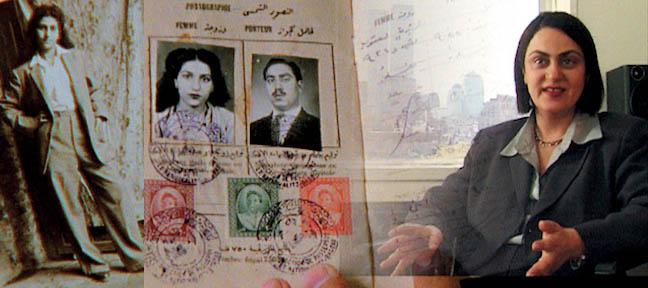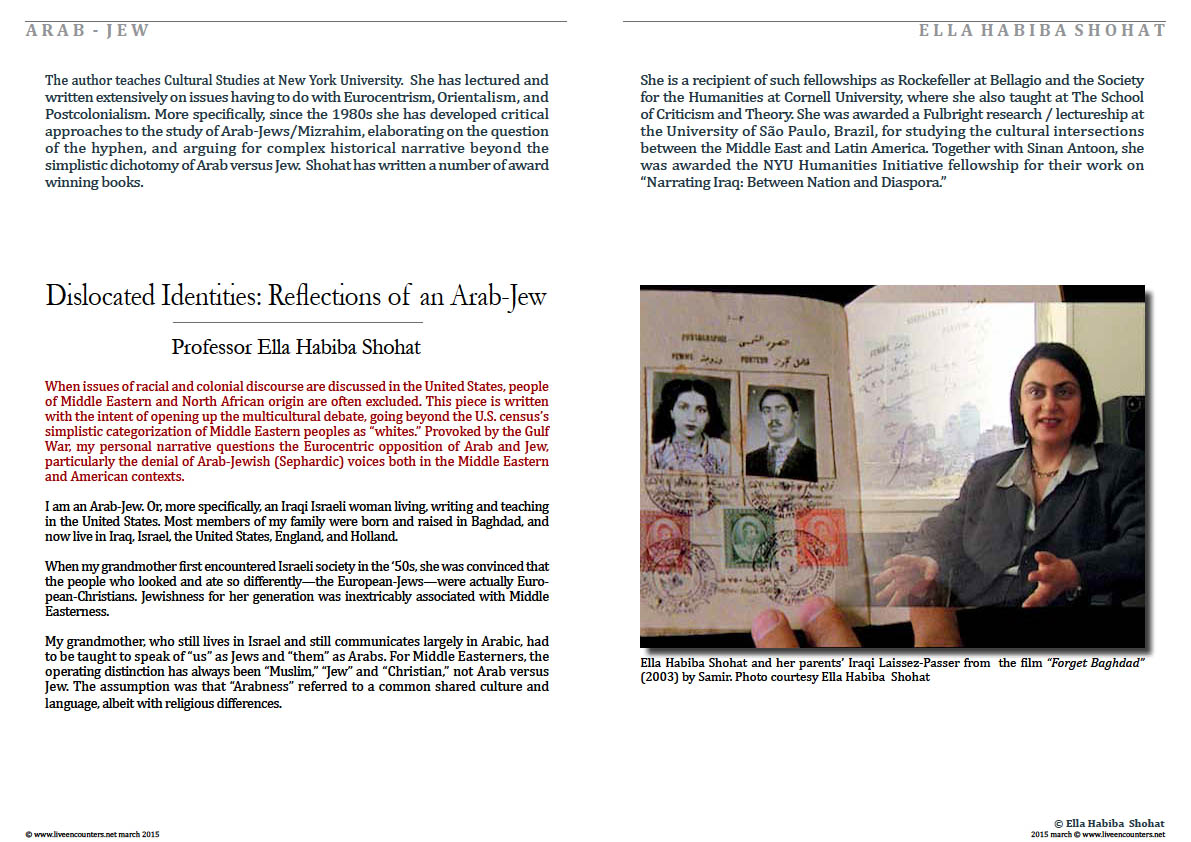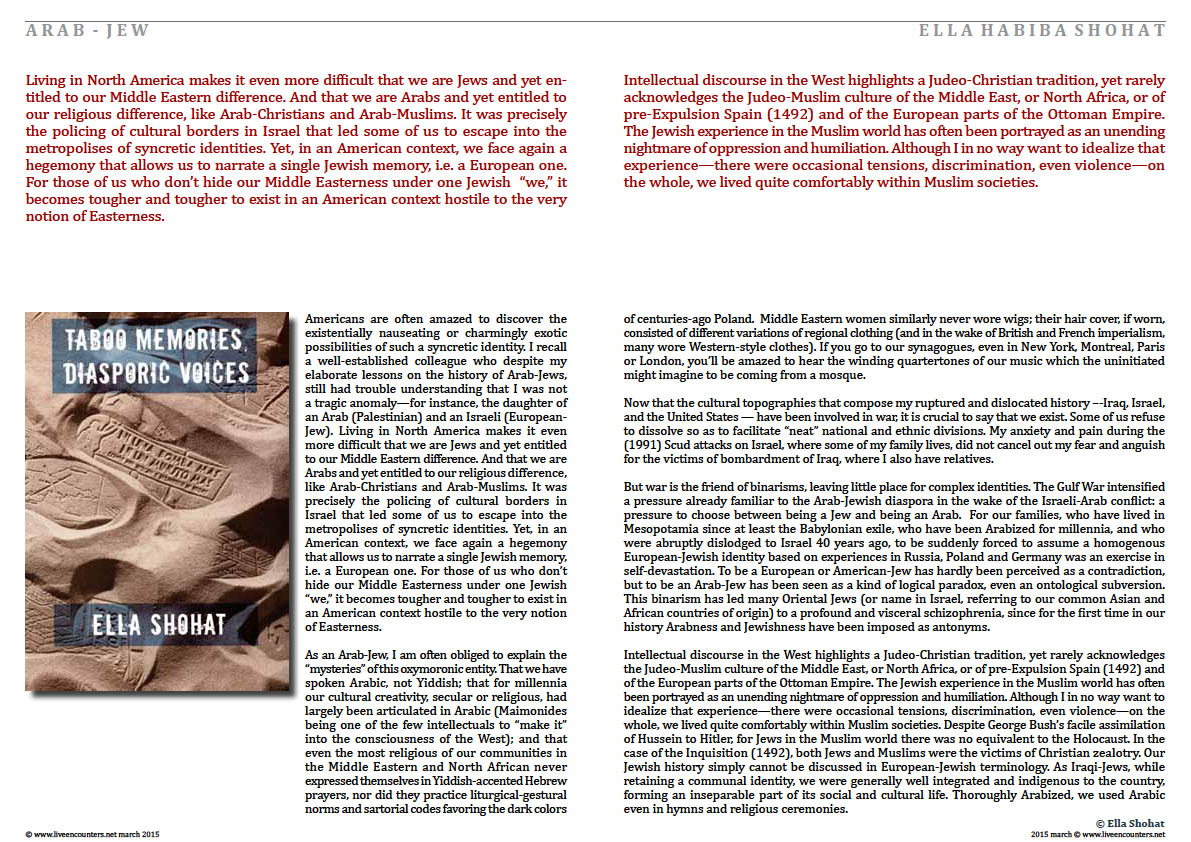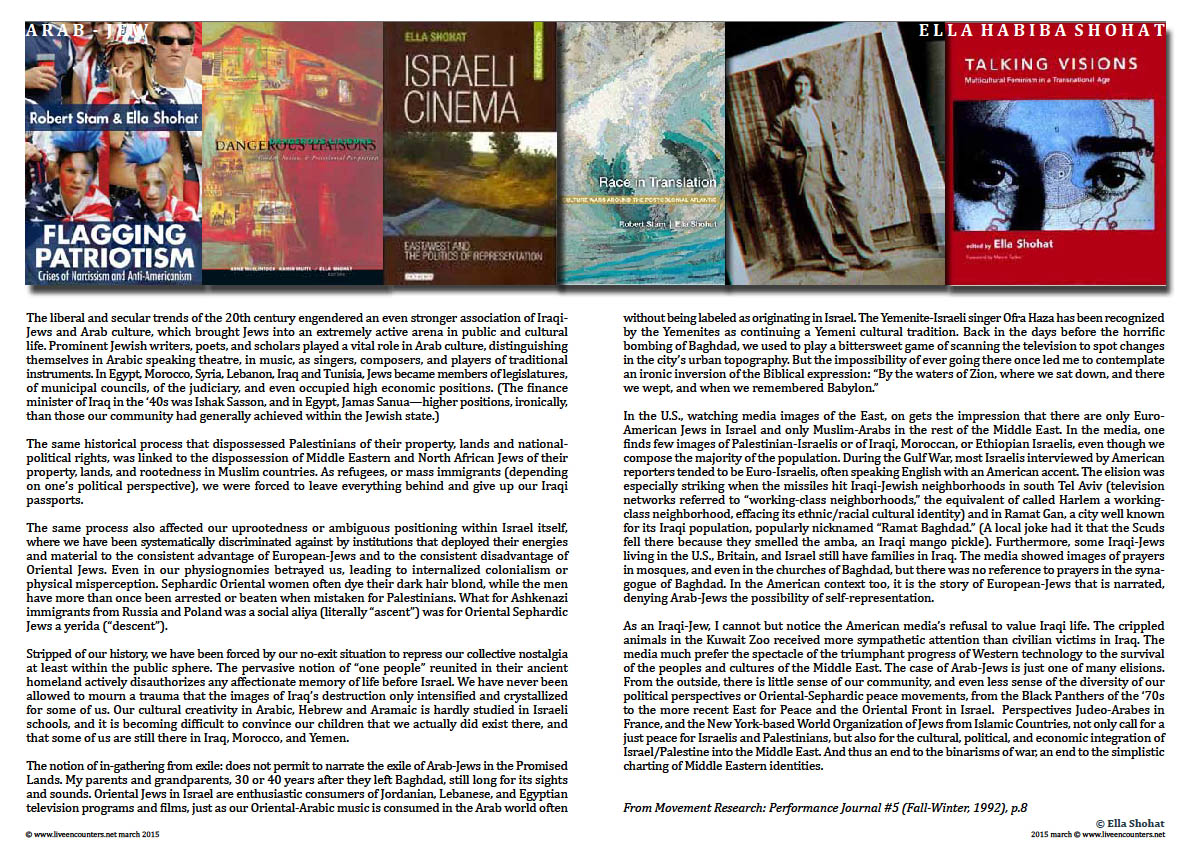Article in PDF (Download)
Dislocated Identities: Reflections of an Arab-Jew by Professor Ella Habiba Shohat
When issues of racial and colonial discourse are discussed in the United States, people of Middle Eastern and North African origin are often excluded. This piece is written with the intent of opening up the multicultural debate, going beyond the U.S. census’s simplistic categorization of Middle Eastern peoples as “whites.” Provoked by the Gulf War, my personal narrative questions the Eurocentric opposition of Arab and Jew, particularly the denial of Arab-Jewish (Sephardic) voices both in the Middle Eastern and American contexts.
I am an Arab-Jew. Or, more specifically, an Iraqi Israeli woman living, writing and teaching in the United States. Most members of my family were born and raised in Baghdad, and now live in Iraq, Israel, the United States, England, and Holland.
When my grandmother first encountered Israeli society in the ‘50s, she was convinced that the people who looked and ate so differently—the European-Jews—were actually European-Christians. Jewishness for her generation was inextricably associated with Middle Easterness.
My grandmother, who still lives in Israel and still communicates largely in Arabic, had to be taught to speak of “us” as Jews and “them” as Arabs. For Middle Easterners, the operating distinction has always been “Muslim,” “Jew” and “Christian,” not Arab versus Jew. The assumption was that “Arabness” referred to a common shared culture and language, albeit with religious differences.
Professor Ella Habiba Shohat teaches Cultural Studies at New York University. She has lectured and written extensively on issues having to do with Eurocentrism, Orientalism, and Postcolonialism. More specifically, since the 1980s she has developed critical approaches to the study of Arab-Jews /Mizrahim, elaborating on the question of the hyphen, and arguing for complex historical narrative beyond the simplistic dichotomy of Arab versus Jew. Her award-winning books include: Taboo Memories, Diasporic Voices (2006); Between the Middle East and the Americas: The Cultural Politics of Diaspora (2013, co-edited); Israeli Cinema: East/West and the Politics of Representation (1989; New Updated Edition with a new postscript chapter, I.B. Tauris, 2010); Le sionisme du point de vue de ses victimes juives: les juifs orientaux en Israel, (1988, 2006.)Talking Visions: Multicultural Feminism in a Transnational Age (1998); Dangerous Liaisons: Gender, Nation and Postcolonial Perspectives (coedited, 1997); and with Robert Stam, Unthinking Eurocentrism (1994; and 20th anniversary second Edition with an Afterward Chapter); Multiculturalism, Postcoloniality and Transnational Media (2003); Flagging Patriotism: Crises of Narcissism and Anti-Americanism (2007); and Race in Translation: Culture Wars Around the Postcolonial Atlantic (2012). Shohat wrote the postscript to the Hebrew translation of Fanon’s The Wretched of the Earth. Her work has been translated into diverse languages, including: Arabic, Hebrew, Turkish, French, Spanish, Portuguese, German, Polish, and Italian. Shohat has also served on the editorial board of several journals, including: Social Text; Critique: Critical Middle Eastern Studies; Meridians: Feminism, Race, Transnationalism; Interventions: International Journal of Postcolonial Studies; and Middle East Journal of Culture and Communication. Some of her Social Text co-edited special issues include: “Palestine in a Transnational Context” (2003) and “Edward Said: A Memorial Issue” (2006). She is a recipient of such fellowships as Rockefeller at Bellagio and the Society for the Humanities at Cornell University, where she also taught at The School of Criticism and Theory. She was awarded a Fulbright research / lectureship at the University of São Paulo, Brazil, for studying the cultural intersections between the Middle East and Latin America. Together with Sinan Antoon, she was awarded the NYU Humanities Initiative fellowship for their work on “Narrating Iraq: Between Nation and Diaspora.”





